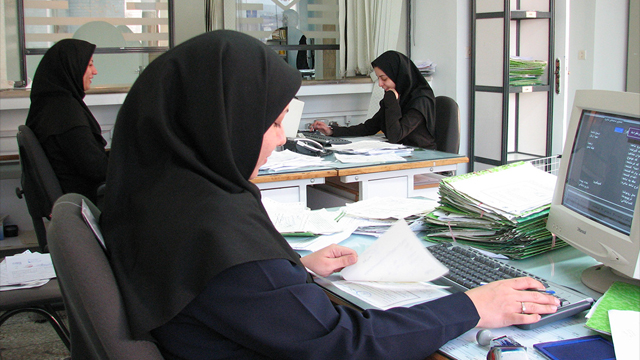New Law Reduces Employment Prospects for Women in Iran

Iran’s Parliament has ratified an amended law that reduces the working hours of female employees with certain family obligations by eight hours per week. Although the law requires employers to pay these women full-time wages, rights advocates say the law will harm the employment prospects of women entering the job market and reduce the job security of those already employed, as employers balk at the costs the legislation will incur upon them.
“In Iran employers find a thousand ways to avoid paying the wages of full-time workers while getting rid of workers with impunity. Without changing the behavior of employers, this law will only make conditions more difficult for employed women,” a women’s rights activist based in Tehran told the International Campaign for Human Rights in Iran.
“Experience tells us that employers hate additional expenses,” said an Iranian labor activist who asked to remain anonymous. “Right now there’s a debate between the government and employers over which side should cover the costs associated with this law. The employers may not have the muscle to force it on the government, but they can cut their workforce and stop hiring.”
“Women who are currently employed may welcome this legislation. Those who will be most affected are women entering the job market in the future; employers will not want to hire women under these conditions,” said women’s studies researcher Nasrin Afzali. “Still, employed women shouldn’t feel safe; they will be the first in line to lose their job when employers decide to make cuts in the workforce, or they will not be considered for management positions.”
Burden of Costs
The “Reduction of Office Hours Act For Women With Special Circumstances,” which has been forwarded for final ratification to the Guardian Council, the clerical body that vets and approves all legislation’s conformity with Islamic law, authorizes the Ministries of Health and Justice and the Welfare Organization to determine which employed women qualify for lower working hours.
Qualified women must have children with disabilities, or children under six years of age, or sick family members in need of care; these women would be eligible to work 36 hours but theoretically be paid according to a 44-hour week.
Parliament Speaker Ali Larijani has said that the government is refusing to comply with the law’s Article 7, which requires the government to compensate employers for expenses stemming from the law in the private and non-governmental sectors.
On April 22, 2016 MP Abdolreza Azizi, chairman of the Parliamentary Commission of Social Affairs, said that employers would be “dealt with” if female employers are fired as a result of the law, but he did not say how.
Iran maintains one of the world’s lowest percentages of women in the workforce. According to the Islamic Republic’s Management and Planning Organization, women hold only 11 percent of the country’s jobs.
According to a study conducted by sociologist Mehrdad Darvishpour, gender discrimination, the patriarchal structure of families, and the state’s anti-women’s rights ideology have kept female employment rates low in Iran since the 1979 Revolution.






